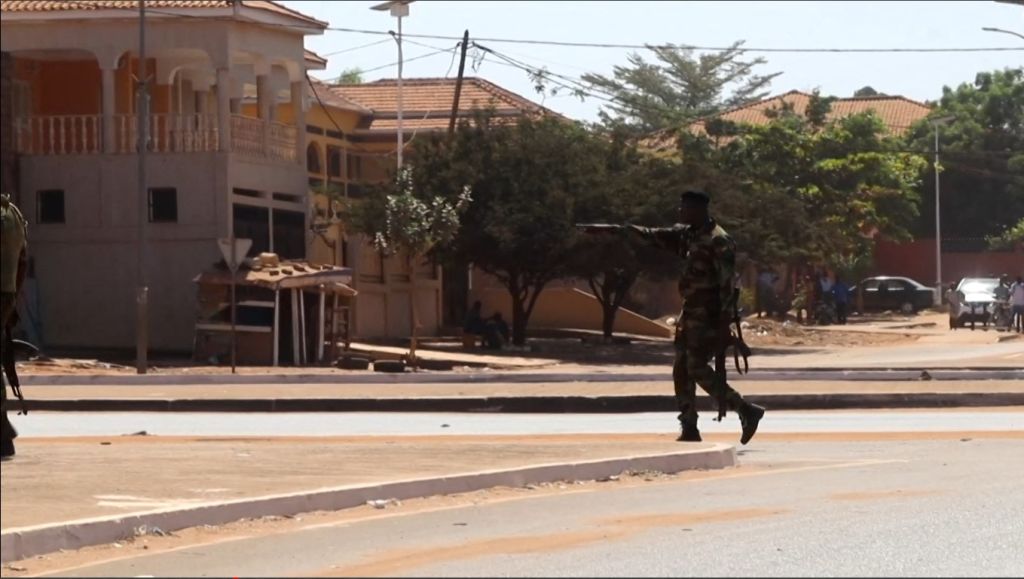ADF STAFF
Since gaining independence in 1974, Guinea-Bissau has experienced at least nine different coup attempts.
The most recent plot, in February, shared similarities with others in that it involved members of the military who are connected to the country’s infamous drug trade.
Heavily armed gunmen surrounded the presidential palace while President Umaro Sissoco Embaló held a cabinet meeting. Seven members of his security detail, three government workers and one assailant were killed in the ensuing five-hour battle.
Afterwards, Embaló said the “failed attack against democracy was well-prepared and organized and could also be related to people involved in drug trafficking.”
In a news conference the following day, he said the attempted coup was in retaliation for his stance on thwarting the drug trade.
“When I committed to this fight against corruption and narco-trafficking,” he said, “I think that I signed my death warrant.”
That narcotics may have played a role in the attack is unsurprising in a country that has become a known transit point for drugs trafficked from Latin America.
The United Nations has described Guinea-Bissau as a “narco-state” where criminal networks within the government have funded politicians to protect the illicit drug trade.
Violent drug-related episodes have intertwined in political affairs throughout the country’s history.
In 2009, the assassination of President João Bernardo Vieira by members of the military was believed to have been connected to trafficking networks. The “Cocaine coup” of 2012 followed, as army officers seized control of the government and the drug trade.
When Embaló won disputed elections in 2019, he promised that there would be a “zero-tolerance” attitude towards drug trafficking.
“Some of those previously involved in it seem to have made a comeback,” Lucia Bird, of the Global Initiative Against Transnational Organized Crime (GI-TOC), told the BBC.
At Embaló’s direction the police have increased an emphasis on combating the drug trade, but progress has been difficult to attain.
Analyst Henok Gabisa blames drug cartels for “destroying” the country.
“There is a fierce battle among the political elites in Guinea-Bissau to control political power,” he told the Turkish Radio and Television Corporation.
“Drug traffickers from Latin America might have picked Guinea Bissau because of its political instability and weak or non-existent immigration enforcement at the coast.”
The U.N. estimates that 27% of the cocaine consumed in Europe passes through West Africa.
Officials confiscated nearly 3 tons of cocaine in Guinea-Bissau in two seizures alone in 2019. The government said the larger of the two seizures, 1.8 tons, was bound for terrorists in the Sahel, who sell it to fund their operations.
“Drug trafficking has an impact not only on the rule of law, undermining the law enforcement institutions in the country, but also has an impact on the population itself that becomes increasingly used to and addicted to the drug,” U.N. Office on Drugs and Crime (UNODC) Chief of Research and Analysis Angela Me said in a video.
The UNODC is working with Guinea-Bissau and other regional governments to improve law enforcement training as well as legislative and judicial policies around drug trafficking and organized crime.
In a recent report for GI-TOC entitled “Cocaine Politics in West Africa: Guinea Bissau’s protection networks,” Bird concludes that “deep changes are underway.”
European governments and international organizations are becoming more involved. The relationship of the country’s elites with civil society is improving.
But most importantly, the balance of power between the government and military is shifting.
“These power struggles may be disrupting the country’s long-standing cocaine protection structures in an unprecedented manner,” she wrote.

